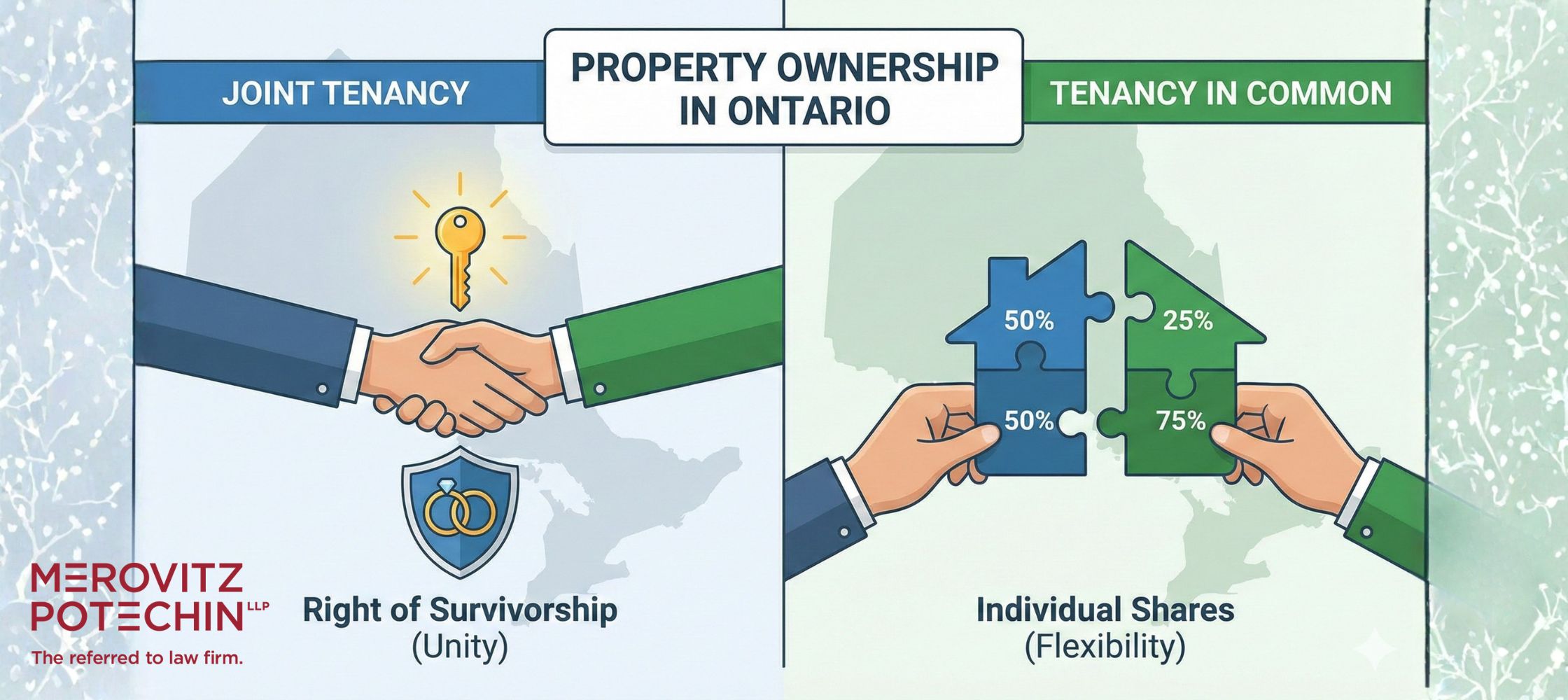Categories
Agreements of Purchase and Sale Must be Completed in Good Faith

If you have been following my blog, I surprised many people last year with the revelation in Agreements of Purchase and Sale are legally binding contracts that you cannot simply “use” a condition in the agreement to “get out” of the deal.
In 2336574 Ontario Inc v 1559586 Ontario Inc, the Ontario Superior Court confirmed that both a Purchaser and Vendor have an obligation to complete a transaction in strict accordance with the terms of the Agreement. One party does not have an obligation to amend the Agreement to accommodate the other.
The case itself is narrowly applied as being between parties who are commercially sophisticated and in a “one-off” transaction, rather than a series of ongoing transactions. Even so, it provided an important reminder for anyone entering into a real estate agreement: when you sign, you are expected to perform.
Time Is of the Essence in Agreements of Purchase and Sale
Virtually all Agreements of Purchase and Sale contain a clause that states that time is of the essence. In the standard OREA Form for residential purchases it is s. 20; in the standard OREA Form for commercial purchases it is s. 19. In more sophisticated agreements, your lawyer will almost certainly insert such a clause. The purpose of the clause is to let each party know that it is relying upon the other to complete the transaction on time. Failure to complete the transaction on time is a breach of the agreement which may result in the loss of your deposit and being sued for any damages that arise.
In 2336574 Ontario Inc., the purchaser asked for an extension which was refused. The purchaser claimed that the vendor was not acting in good faith. The judge disagreed. The vendor had the expectation that the transaction would be completed on the closing date and time was of the essence.
The Domino Effect of Delays in an Agreement of Purchase and Sale
Some may wonder what harm could come from granting a one-day extension. In practice, however, a delay can have a domino effect. Vendors often rely on sale proceeds to complete their own purchases or refinance obligations. If one deal doesn’t close on time, the vendor could find themselves in breach of another agreement. In 2336574 Ontario Inc., neither party gave reasons for their request or refusal, but the court still held that the vendor was entitled to rely on the strict terms of the contract.
The lesson is clear: the terms of the Agreement are binding. If a party cannot or does not intend to fulfill them, they must negotiate an amendment before signing. Entering into an agreement with the hope of changing the deal later is never advisable.
Good Faith, Waiver, and Strict Performance in Real Estate Transactions
Although the case at hand was only about extending the completion date, it would be easy to see how the principal of adhering to the strict letter of the contract can be extrapolated from the judgement. As the judge stated in paragraphed 24 of the case, “Where the parties have a long-term, ongoing relationship, a level of good faith may be expected that imposes flexibility and obligations beyond the letter of the contract; where they are commercially experienced buyers and sellers in a discreet, one-off transaction, the level of contract adherence would not be expected to vary from the strict contractual terms.” The takeaway: understand the obligations in your Agreement of Purchase and Sale and follow them strictly. Failure to do so can result in breach, loss of deposit, and exposure to a claim for damages.
Bell v Bisaillon: When Conduct Waives a Condition
A recent Ontario decision, Bell v Bisaillon, 2025 ONSC 3965, builds on these same principles, emphasizing that strict performance is not the only exception. Parties must also act honestly and in good faith and cannot rely on a condition as an after-the-fact escape once their conduct shows they intended to proceed.
In Bell v. Bisaillon, the seller agreed to sell his property in Long Sault, Ontario, to the purchaser under an Agreement of Purchase and Sale that included a standard solicitor’s review condition (meaning the seller’s lawyer had the right to review the agreement and, if the lawyer disapproved, the seller could terminate the deal before a set deadline). After signing, the seller refused to close, claiming that the condition had not been satisfied or had been exercised to terminate the agreement. The purchaser disagreed, arguing that the seller had already waived the condition through his conduct and was acting in bad faith by refusing to complete the sale.
The Ontario Superior Court agreed with the purchaser. The judge found that the seller’s actions showed he had accepted the deal and was moving ahead with the sale. Because the seller acted as if the agreement was final, he gave up the right to rely on the solicitor review condition later to cancel the deal. The court also found that the seller acted in bad faith; he had led the buyer to believe the sale would go through, only to back out at the last minute without a valid reason. As a result, the court ordered specific performance, meaning the seller was required to go through with the sale as originally agreed.
Key Principles from 2336574 Ontario Inc. and Bell v Bisaillon
This decision reinforces that once you’ve entered into a binding Agreement of Purchase and Sale, you cannot “change your mind” by hiding behind a condition. Conduct inconsistent with reliance on that condition will likely amount to waiver, and attempting to walk away may constitute bad faith.
Together, 2336574 Ontario Inc. and Bell v Bisaillon illustrate two essential principles in Ontario real estate law. The first being strict performance; courts expect parties to perform exactly as agreed and that time is of the essence. The second is good faith and waiver; parties must act honestly and fairly and cannot rely on a condition they’ve already waived through their conduct.
What This Means for Buyers and Sellers
Both decisions serve as cautionary tales for anyone entering into a real estate deal. Whether you are a buyer or a seller, the message is the same: understand your obligations before you sign and follow them carefully once you do. If you cannot meet a term or deadline, address it openly and formally — not by silence or assumption.
If you have a real estate contract that you need reviewed prior to signing, or to complete the transaction, please contact Noah Potechin or call 613-563-6692.
The content on this website is for information purposes only and is not legal advice, which cannot be given without knowing the facts of a specific situation. You should never disregard professional legal advice or delay in seeking legal advice because of something you have read on this website. The use of the website does not establish a solicitor and client relationship. If you would like to discuss your specific legal needs with us, please contact our office at 613-563-7544 and one of our lawyers will be happy to assist you.








